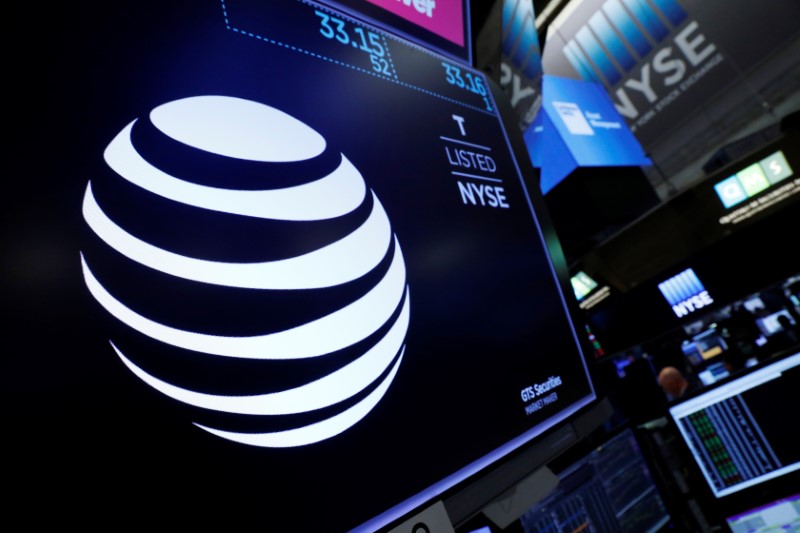By Sheila Dang and Pushkala Aripaka
(Reuters) - AT&T Inc (NYSE:T), the new owner of cable channels HBO and TNT, on Tuesday reported quarterly revenue that fell shy of Wall Street estimates but added more wireless subscribers than expected.
Shares of the Dallas-based company fell 1 percent in after-hours trading following the mixed results for the second quarter, which included about two weeks of results from Time Warner Inc (NYSE:TWX).
AT&T bought the entertainment conglomerate to attract consumers and advertisers to its mobile products and compete with internet firms like Netflix Inc (NASDAQ:NFLX), Facebook Inc (NASDAQ:FB) and Alphabet (NASDAQ:GOOGL) Inc's Google.
Total operating revenue fell about 2 percent to $38.99 billion, missing analysts' average estimate of $39.39 billion, according to Thomson Reuters I/B/E/S.
The second-quarter revenue included the impact of an accounting change, said AT&T, the second-largest U.S. wireless carrier by subscribers.
AT&T's service revenue, which includes all operating revenue except equipment and media revenue, declined 7.6 percent from the prior-year quarter.
"None of their businesses are performing well," said Jonathan Chaplin, analyst at New Street Research. "Apart from the one that they only owned for 16 days, the only one that isn’t shrinking is wireless. And wireless isn't growing, it just isn't shrinking anymore. Less bad isn’t the same as good."
After a six-week trial, AT&T won court approval last month to close its $85 billion acquisition of Time Warner and began bundling the content it gained from the deal with new wireless plans to drive subscriber growth.
A federal appeals court last week approved the U.S. Justice Department's request for an expedited schedule to appeal the ruling on antitrust concerns.
John Donovan, chief executive of AT&T Communications, told investors on a conference call that the company has introduced video options with a wide variety of price points, such as streaming service WatchTV at $15, which was launched after AT&T closed the Time Warner acquisition.
AT&T said it will introduce new advertising formats through next year, such as letting viewers pause a TV show and watch related sponsored content on their phones, instead of a traditional commercial break.
Time Warner and other merger costs were $321 million in the second quarter when the trial took place.
Net income attributable to the company rose to $5.1 billion, or 81 cents per share, in the quarter ended June 30 from $3.92 billion, or 63 cents per share, a year earlier.
On an adjusted basis, the company earned 91 cents per share. Analysts had expected adjusted earnings per share of 85 cents.
AT&T added a net 46,000 postpaid mobile phone subscribers in the second quarter. Analysts on average were expecting net adds of 14,000, according to financial and data analytics firm FactSet.
It also lost 286,000 satellite television subscribers, as viewers continue to "cut the cord" in favor of streaming video platforms.
Craig Moffett, an analyst with MoffettNathanson, characterized the quarter as weak, pointing out that service and organic revenues are shrinking.

"Those are terrifying numbers for a company leveraged at four times (earnings before interest, taxes, depreciation and amortization)," he said.